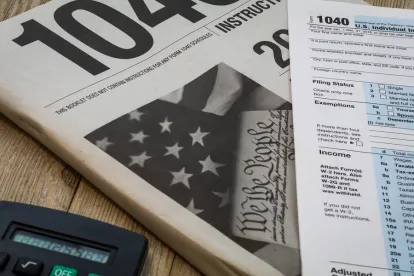On April 24, 2020, the US Court of Appeals for the Eighth Circuit published its opinion in Wells Fargo & Co. v. United States, No. 17-3578, affirming a district court’s holdings that the taxpayer was not entitled to certain foreign tax credits and was liable for the negligence penalty for claiming the credits. Much has been written about the substantive issue, which we will not discuss here. Instead, we focus on the Eighth Circuit’s divided analysis relating to the reasonable basis defense to the negligence penalty.
In Wells Fargo, the taxpayer relied solely on the reasonable basis defense to the government’s assertion of penalties. Under Internal Revenue Code (IRC) section 6662(b)(1), a taxpayer is liable for penalty of 20% of an underpayment of its taxes attributable to its “negligence.” Various defenses are potentially applicable to the negligence penalty, which we recently discussed in detail here. One such defense is if the taxpayer can show it had a “reasonable basis” for its position. Under Treas. Reg. § 1.6662-3(b), this defense applies if the taxpayer’s return position was “reasonably based on” certain authorities specified in the regulations.
The question for the Eighth Circuit was whether the reasonable basis standard is objective (as argued by the taxpayer) or subjective (as argued by the government). The majority agreed with the government (and the district court), holding that “the reasonable-basis defense requires evidence of actual reliance on the relevant authority on the part of the taxpayer.” It reasoned that the Treasury Regulations unambiguously requires a taxpayer to consult the relevant authorities to be able to demonstrate that the position taken on its tax return was “based” on such authorities. The majority concluded that, because the taxpayer did not provide evidence of actual reliance, it did not need to address whether the return position actually had a reasonable basis under the existing legal authorities.
The Eighth Circuit also held that IRC section 6751, which requires written supervisory approval of penalty determinations in certain situations, did not apply. The court reasoned that because the negligence penalty in the case before it was an offset defense, there was not and never could be any “assessment” as required by the statutory language. More information on the supervisory approval requirement can be found here.
One judge dissented from the majority’s views on the reasonable basis defense, persuasively arguing that such defense is cast in objective terms and nowhere alludes to an actual “reliance” requirement. The dissent pointed out that if actual reliance was required, then it should have been expressly stated in the Treasury regulations. The dissent also disagreed with the district court’s deference to the government’s interpretation of the relevant regulation, explaining that although the regulation was ambiguous and the agency’s position was reasonable, the other three requirements recently outlined in Kisor v. Wilkie, 139 S.Ct. 2400 (2019), to warrant deference were likely not met. One of our prior discussions of Kisor can be found here.
Practice Point: The majority’s holding that the reasonable basis defense requires a taxpayer to show it actually relied on authorities when it claimed the controversial positon on the return is controversial. Indeed, many practitioners and academics disagreed with this holding when it was announced by the district court. There are strong arguments that Congress intended that the reasonable basis defense be analyzed on an objective basis, including the fact that Congress made clear that the separate reasonable cause defense is analyzed on a subjective basis.
The Eighth Circuit’s opinion is also troubling from a privilege standpoint. Courts have previously held that asserting a reasonable cause defense can waive privilege because such defense is subjective and puts the taxpayer’s state of mind at issue. Under the Eighth Circuit’s analysis, the same waiver arguments could apply to the assertion of a reasonable basis defense. Indeed, the majority acknowledged as much in its opinion.
We anticipate that the government may seek to apply the Eighth Circuit’s opinion broadly in future privilege disputes. It remains to be seen how the Tax Court and appellate courts outside the Eighth Circuit, will respond to such a position. In the meantime, taxpayers need to carefully assess the potential risks and rewards of relying on the reasonable basis defense. Perhaps one way for a taxpayer to sustain its burden to prove actual reliance is to create a file memorandum on its position prior to filing the return.




 />i
/>i

